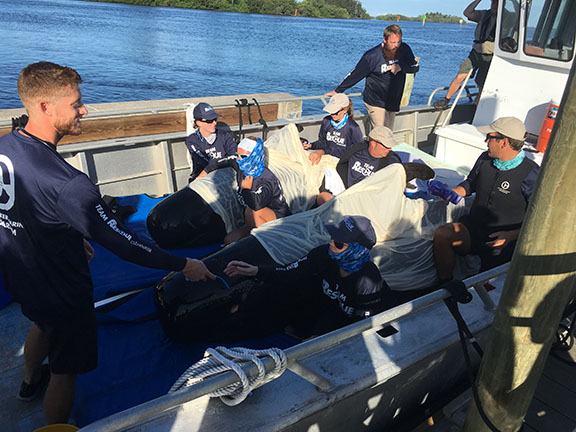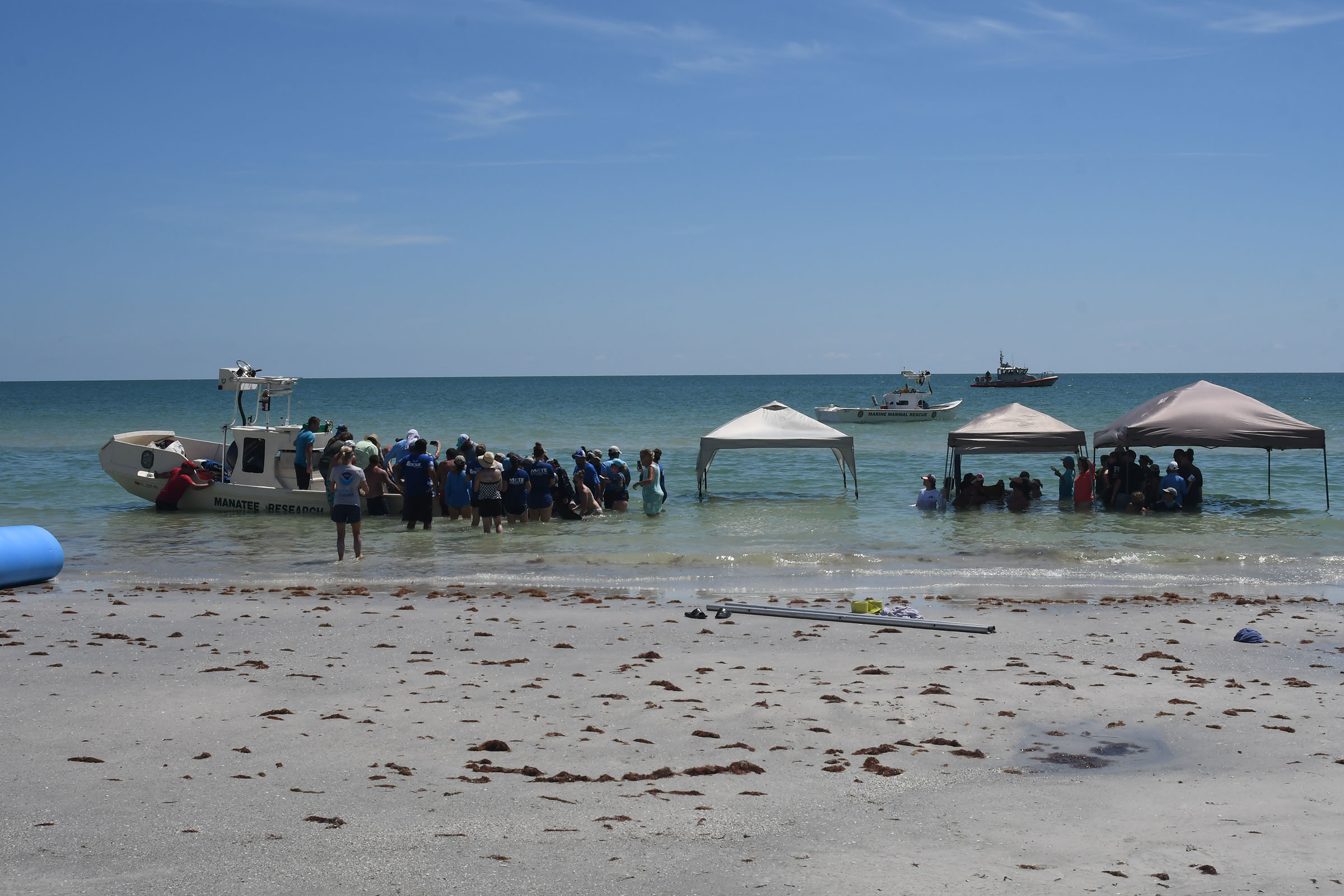
On July 29, 2019, members of the public alerted emergency responders about the stranding of five short-finned pilot whales on Redington Beach, Florida. Clearwater Marine Aquarium’s rescue team led the response, heading to the site along with wildlife agencies and local authorities, including the National Oceanic and Atmospheric Administration, Florida’s Fish and Wildlife Conservation Commission, Pinellas County Sheriff’s Office and other partner agencies, including the Sarasota Dolphin Research Program (SDRP).
On the beach, the whales were kept shaded under tents in shallow water while the team assessed their condition. The team determined that the three largest whales (C, D, E) were able to be immediately released, while the other two whales (A, B) were taken to rehabilitation facilities at the Clearwater Marine Aquarium (CMA) for additional tests.
SDRP, which receives funding for post-release cetacean monitoring from NOAA’s John H. Prescott Marine Mammal Rescue Assistance Program (Grant No. NA18NMF439003), tagged whales C, D and E with time-depth-recording tags before the animals were released about four miles offshore of Redington Beach. Then, on Aug. 1, 2019, SDRP tagged the remaining pair of whales, and they were released about 20 miles offshore of the Anclote River.
We tracked the whales for nine to 36 days post-release.
As the video below shows, the whales remained together in their two release groups for the duration of tracking. We recorded dives of more than 1,200 m depth, lasting more than 22 minutes. Particularly notable: several of the whales demonstrated amazing synchrony, diving to the same depths at the same time.
All of the whales moved northwest to the DeSoto Canyon. Whales A and B remained in the DeSoto Canyon area, while the remaining whales moved along the shelf edge, southward and around the Florida Keys, and then northward in the Atlantic. The last whale, E, was tracked to a point offshore of Cape Hatteras, North Carolina, to an area known through Duke University research to be habitat frequented by pilot whales.
Tags on two of the whales ceased transmitting following declines in dive behavior, suggesting the possibility that they may not have survived. Signals ceased abruptly for the other three following periods of reasonable movements and dives, with no indications of tag problems, so the reasons for the signal loss remain unknown.
Unfortunately, none of the whales reached the 42-day threshold considered to define a successful intervention. However, subsequent re-sightings of the very distinctive fins of these whales could change this decision. As of February 2021, the whales had not been re-sighted.





